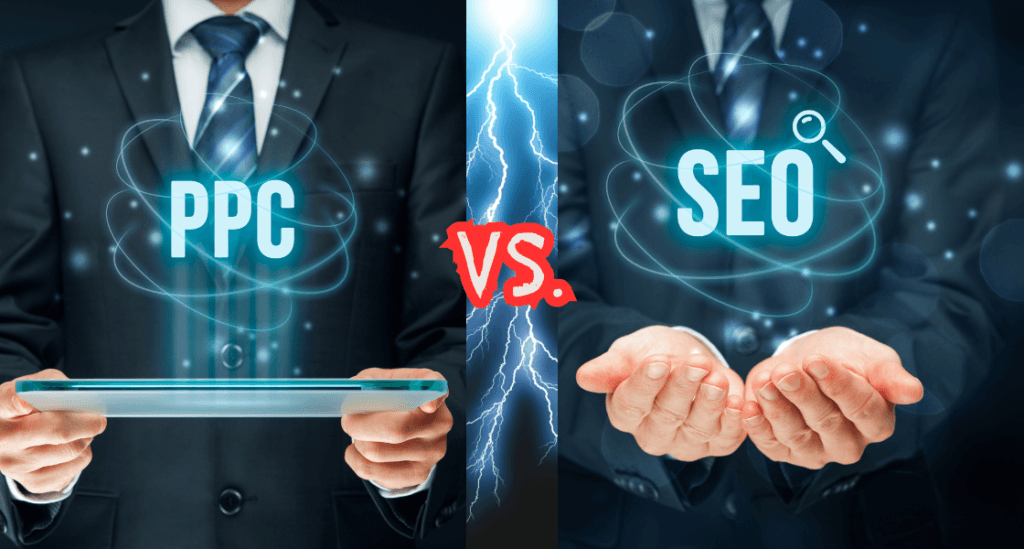pay per click marketing

PPC Marketing
Pay-per-click (PPC) advertising is a digital marketing strategy where you pay only when someone clicks on your ad. It's a great way to increase brand visibility, promote products or services, and reach specific target audiences quickly. While Google Ads is the most well-known PPC platform, you can also use PPC on social media sites like Facebook, Instagram, YouTube, TikTok, and LinkedIn.

Benefits of Pay-Per-Click (PPC) Advertising
Instant Results: PPC campaigns can generate results quickly, allowing you to see a noticeable increase in website traffic and conversions within a short period.
Targeted Traffic: You can precisely target your ads to reach specific demographics, interests, and locations, ensuring that your ads are seen by the most relevant audience.
Measurable Results: PPC campaigns provide detailed analytics, allowing you to track key metrics such as clicks, impressions, conversions, and cost per acquisition (CPA). This data enables you to measure the effectiveness of your campaigns and make data-driven adjustments.
Scalability: PPC advertising is highly scalable, meaning you can increase or decrease your budget as needed to meet your marketing goals.
Flexibility: PPC platforms offer a variety of ad formats, targeting options, and bidding strategies, giving you flexibility to tailor your campaigns to your specific needs.
Complement to SEO: PPC can complement your organic search engine optimization (SEO) efforts by driving traffic to your website while you work on improving your long-term SEO rankings.
PPC Ads
Expertly crafted campaigns for maximum impact
Pay Per Click Services
We will create and manage successful PPC campaigns that drive results for your business.
Maximize Your Profits
Partner with us for results-driven marketing
SEO vs. PPC

PPC
Pros:
- Immediate results: PPC can drive traffic and conversions quickly.
- Targeted reach: You can precisely target your ads to reach specific demographics and interests.
- Measurable results: PPC provides detailed analytics for tracking performance.
- Scalability: You can easily adjust your PPC budget to meet your goals.
Cons:
- Ongoing costs: PPC requires continuous investment to maintain visibility.
- Can be expensive: Costs can escalate in highly competitive niches.
- Click fraud: There is a risk of click fraud, which can impact your ROI.
- Limited organic reach: Once you stop your PPC campaign, your organic traffic may decline.
SEO
Pros:
- Long-term benefits: SEO can provide sustainable organic traffic over time.
- Improved brand visibility: Higher search engine rankings can enhance your brand’s credibility.
- Cost-effective: SEO can be more cost-effective in the long run compared to PPC.
- Builds trust: Organic traffic is often seen as more trustworthy by users.
Cons:
- Time-consuming: SEO can take time to yield results.
- Competitive: Ranking high in search results can be challenging in competitive niches.
- Requires ongoing effort: SEO requires consistent maintenance and updates.
SEO and PPC offer different advantages and disadvantages. The best approach often involves a combination of both strategies to maximize your online visibility, attract targeted traffic, and achieve your business goals.
PPC FAQs
receive latest news, updates, and many more.
